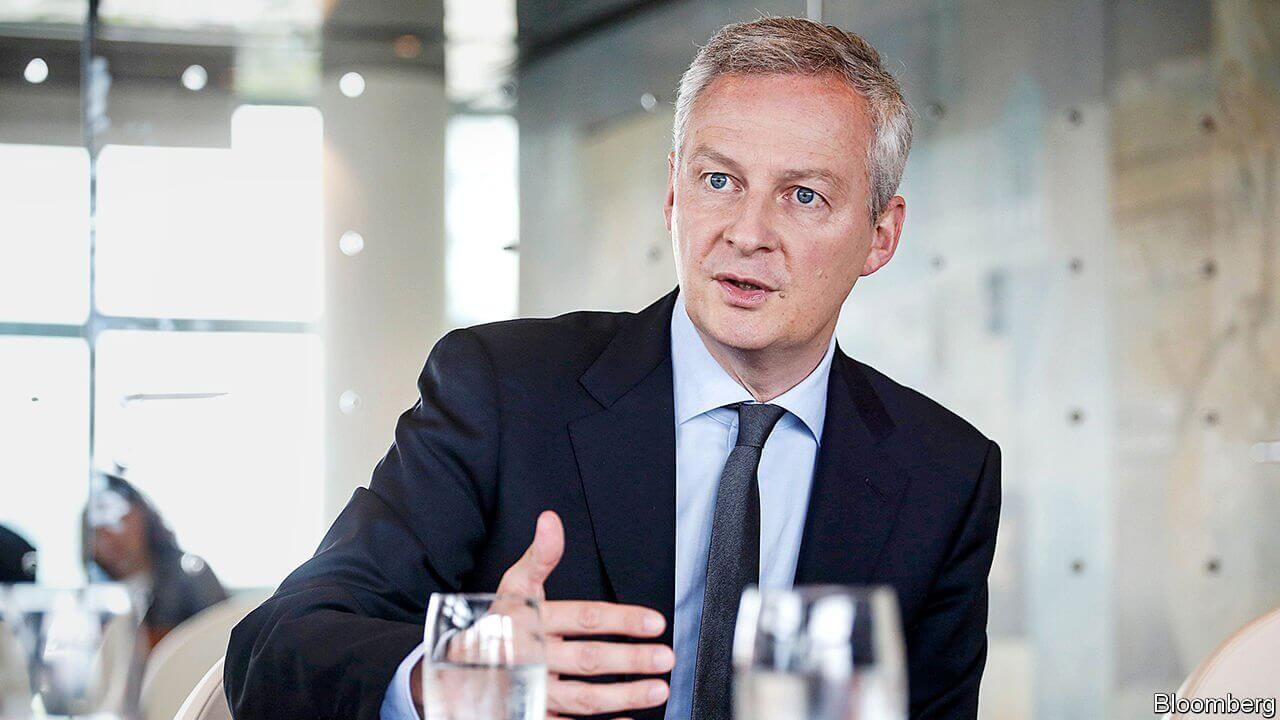Ahead of the Africa France Finance Summit that is set to begin in Paris on Tuesday, during which President Emmanuel Macron will meet with a number of African leaders, France announced a $1.5 billion loan to Sudan to help the country pay off its debt to the International Monetary Fund (IMF). It is hoped that the move will convince international investors of Sudan’s financial preparedness to fully re-integrate with global finance markets. Furthermore, it is thought that the loan could also lead to Sudan’s debt being forgiven under the IMF and World Bank’s Highly Indebted Poor Countries (HIPC) provision. The loan deal was announced by French Finance Minister Bruno Le Maire on Monday.
France, in particular, looks at the loan as an opportunity to gain access to Sudan’s oil and mining resources. Other countries, too, have made similar moves in the recent past. The United States (US) gave a $1.5 billion bridge loan to Sudan to help it clear its arrears with the World Bank, while the United Kingdom (UK) and the European Union (EU) gave Sudan a $425 million loan to help it clear its debt with the African Development Bank (AfDB).
As a result of this support, Sudan was able to clear its financial backlog with the World Bank and the AfFB. However, in order to access the HIPC scheme, which would enable Sudan to secure heaper international financing, Khartoum must also clear its debt with the IMF.
Ahead of the Summit this week, Sudanese Prime Minister (PM) Abdalla Hamdok said that Khartoum has $60 billion in foreign debt, and hopes to use the upcoming meeting to “let foreign investors explore the opportunities for investing in Sudan.” To this end, Sudan’s minister for cabinet affairs Khalid Omar Youssef said that Sudan will offer “projects worth billions of dollars in energy, mining, infrastructure, and agriculture” at the Summit.
Over the past year, the Hamdok administration has worked to re-engage with international actors by dismantling the toxic legacy that former leader Omar al-Bashir left behind and moving the country forward through sweeping social and legal reforms. Khartoum has repealed a number of highly conservative and sexist laws, signed a peace deal with the rebels and integrated them into the national army, and paid the US $335 million as compensation for American victims of terrorist acts under the Bashir administration. All of this has paved the way for Washington to remove Khartoum from its list of State Sponsors of Terrorism (SST), which resulted in the removal of a number of sanctions and restrictions on aid, and allowed it to seek debt relief from international financing organisations and invite foreign investment.
However, due to years of mismanagement and the ongoing pandemic, Sudan’s currency has crumbled, and inflation (which stands at over 300%) and unemployment and inflation have spiralled out of control. Therefore, the $1.5 billion bridge loan offered by France is intended to alleviate some of Sudan’s debt burden it had to take on after Bashir was ousted from power in 2019.
The loan deal is expected to be formally announced tomorrow and will form part of a wider summit on how to protect African economies during this pandemic and beyond. In April, the G-20 announced a suspension on debt payments until the end of the year. In fact, the IMF estimates that Africa has a “financial gap” of $300 billion. To this end, France has proposed that the IMF allow African countries to access the Fund’s Special Drawing Rights (SDRs) so as to enable them to “continue providing crucial services.” Next month, the IMF will decide on whether to issue $650 billion in SDRs, of which only $24 billion is reserves for Africa. France has opined that a larger proportion of these funds, particularly those reserved for richer countries, should be reallocated to Africa.
Crucially, IMF chief Kristalina Georgieva will be in attendance at the Summit to consider this request. The meeting will also be attended by World Bank Managing Director Axel von Trotsenburg, German Foreign Minister Heiko Maas, and EU foreign policy chief Josep Borrell.
France Announces $1.5 Billion Bridge Loan to Sudan to Clear IMF Arrears
France looks at the loan as an opportunity to gain access to Sudan’s oil and mining resources. Other countries, too, have made similar moves in the recent past.
May 18, 2021

IMAGE SOURCE: BLOOMBERGFrench Finance Minister Bruno Le Maire
